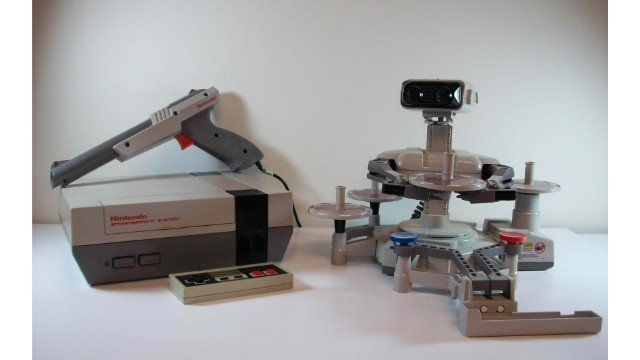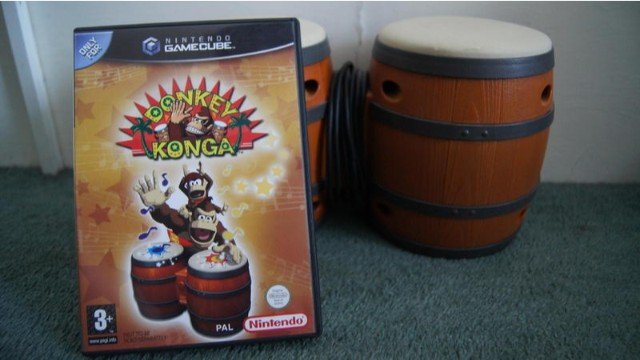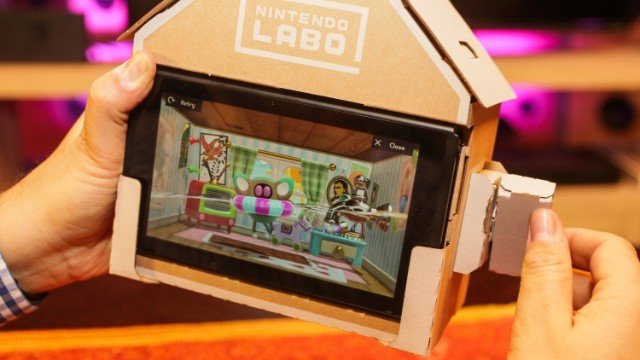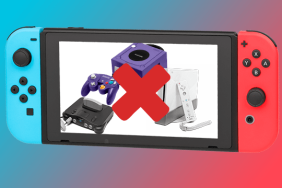Thousands of people have finally got their hands on Nintendo Labo, a versatile collection of accessories almost exclusively constructed of cardboard. Players build various Labo contraptions which provide the same tactile enjoyment as LEGO, each of them easy to build and enhanced by instructions which are directly accessible on the Switch itself.
In a way, Labo’s cheap materials allow Nintendo to take more risks with various accessories and ideas which integrate their new console, many have even managed to play full-length songs with the Toy-Con Keyboard. However, don’t go so far as to call the newly introduced Labo line “revolutionary,” as Nintendo is merely retaining their neverending cleverness with creative, fun, and inventive ways to utilize their hardware with their long-lasting talents when being a toy-maker.

Before they were incorporating them into strategy game crossovers, Nintendo had dealt with different rabbits. The Rabbit Coaster was the company’s first development into toy-creation. It was a toy in which kids placed miniature cars onto a toy track to see which would get to the finish line first. If you know of the American toy-line Hot Wheels, this concept should be familiar. While it was was cheap and simple, it didn’t find that large of an audience.
The company wouldn’t find major success in toys until the Ultra Hand in 1966. This toy was designed by Gunpei Yokoi, an influential designer which contributed towards the creation of the D-Pad, Game & Watch, and GameBoy. The Ultra Hand was colorful, a toy which gave its users the ability to grab things from a distance. It was sold for a mere $6 in Japan and was such a massive success that it opened an R&D department that Yokoi headlined.

Yokoi would then find considerable success throughout various projects but found it massively yet again when developing a puzzle barrel under the moniker Tenbillion. It featured a variety of levels, with the goal being to organize a series of colored marbles. Its bizarre name is cited by Yokoi to be reflective of the number of ways you can solve it, Tenbillion. It’s advertised accessibility and cost (of which less than $10) made it the company’s biggest success, prior to their forays into the video game industry.
The throughline is that all of these toys had a theme which attributed to their success, a focus on simple ideas that were cheap to manufacture and clever in concept. These concepts continue with their systems and games, and the legacy of toys attributing to their success wouldn’t stop there.

Nintendo owes a great deal of success to accessories, as the toys manufactured utilizing their products in unique ways opened the door to their systems being sold in the first place. There was a crash in video game sales in 1984, and retailers refused to supply video game systems and their games on store shelves. Nintendo had utilized their toy-making talents in order to convince retailers that their premiere system wasn’t a video game console at all, specifically labeling the console as an “entertainment system.”
They were able to do this by bundling a variety of accessories with the Nintendo Entertainment System and its games. This included the notorious Duck Hunt Zapper, the Track and Field Power Pad, and the iconic Robot Operating Buddy system (or R.O.B. as it’s more commonly referred as) which aided players in Gyromite and Stack-Up.

Even though retailers shifted their interest in video games following Nintendo’s success, the accessory legacy continued with the Super Nintendo, GameCube, and Wii. As popular gameplay expansions included the bazooka styled Super Scope, the rhythm game enhancing Bongo Drums, and the exercise peripheral Wii Fit Board respectively.
Nintendo wasn’t without its failures, unwanted experiments, and downright vaporware like the Vitality Sensor. Yet, the company managed to capture practical applications of the hardware which went on to sometimes push hardware through a second life of sales.

Ultimately, Labo isn’t a risky and revolutionary idea for Nintendo even this early in the Nintendo Switch lifespan. While the kits may sell a great amount, and allowing a greater variety of accessories to be produced on such a cheap format is genius, Nintendo has set out to make fun from their hardware a precedent since the 1980’s. Something which won’t change for each of their console generations, whether plastic, metal, or cardboard.








